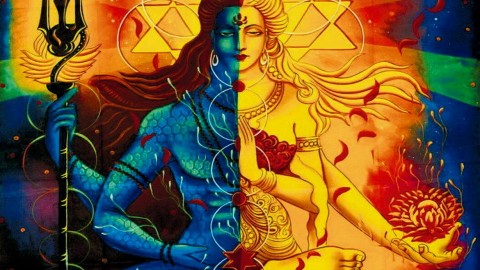Zen Butcher – In Gita Verse 4.36 Even if you are considered to be the most sinful of all sinners, when you are situated in the boat of transcendental knowledge you will be able to cross over the ocean of miseries.
In the Bhagavad Gita Verse 4.36, it is mentioned that even if you are the most sinful person, you can still overcome all your sins through the power of knowledge. This eternal question has been pondered by many. The cycle of sin seems endless and deep, but can a single moment of enlightenment break this chain?
Ethicists, who focus solely on sin and virtue without delving into deeper understanding, may suggest that for every sin committed, one must perform a good deed to balance it out. However, this endless cycle of sin and virtue leads to a never-ending loop of trying to offset one with the other.
Living itself can be considered a sin, as even the most mundane actions can inadvertently cause harm. In this vicious cycle, trying to eradicate sin with good deeds only leads to more sin. This endless loop traps those who adhere strictly to moral codes and prevents them from attaining true liberation.
Krishna presents a different perspective, stating that even the greatest sinner can be free from their sins through a single incident of knowledge. Sin, like darkness, has no density and can be dispelled by the light of knowledge. Sin cannot be eradicated by virtue, as virtue itself is intertwined with subtle sin. Only knowledge, which exists without sin, can truly free one from the shackles of sin.
Sin is likened to a dream, transient and insubstantial. Trying to combat sin with more sin or with virtue is futile, as it only perpetuates the cycle. Just as a dream dissolves upon waking, sin vanishes in the light of knowledge.
Indian philosophy, often misunderstood in the West, transcends traditional notions of morality and ethics. It challenges the belief that sin is an insurmountable burden and offers a path to liberation through enlightenment.
The pursuit of knowledge and self-realisation is the key to breaking free from the cycle of sin and virtue. By transcending conventional morality and embracing true understanding, one can attain true freedom from the constraints of sin.
There exists neither profanity nor sanctity in the world; it is neutral. The choice is yours in shaping its significance. Through meditation, the mundane transforms into the sacred, imbuing every action with mindfulness.
To illustrate this point, let us explore the tale of a Zen Master, a Japanese butcher who was held in high regard as a saint, despite the nature of his occupation. This butcher approached his work with love, compassion, and a sense of responsibility. He saw his act of killing animals not as a sinful deed, but as a way to release them from their suffering and send them on a new journey. He understood that these animals would be killed regardless, and he wanted to ensure they were treated with kindness and care.
The butcher’s approach to his work transformed a seemingly profane and ugly act into something beautiful and graceful. His actions were guided by love and compassion, and he was willing to face any consequences for his deeds. The emperor of Japan even visited him and marveled at the way he carried out his work with such grace and precision.
The butcher’s story teaches us that it is not the act itself that defines us, but the consciousness with which we perform it. By infusing our actions with love, compassion, and mindfulness, even the most mundane tasks can become acts of devotion and offering to the divine.
Krishna’s verse 4.36 reminds us that true liberation comes from transcending our knowledge to a state of knowing. When we approach our actions with love, compassion, and responsibility, we can transform even the most sinful deeds into acts of grace and beauty. Just as the butcher turned his profession into a sacred practice, we too can elevate our daily actions to become offerings to the divine.
Tags: Zen Butcher






Hearty thanks for great support in transforming from Knowledge to Knowing.
Thank you very much